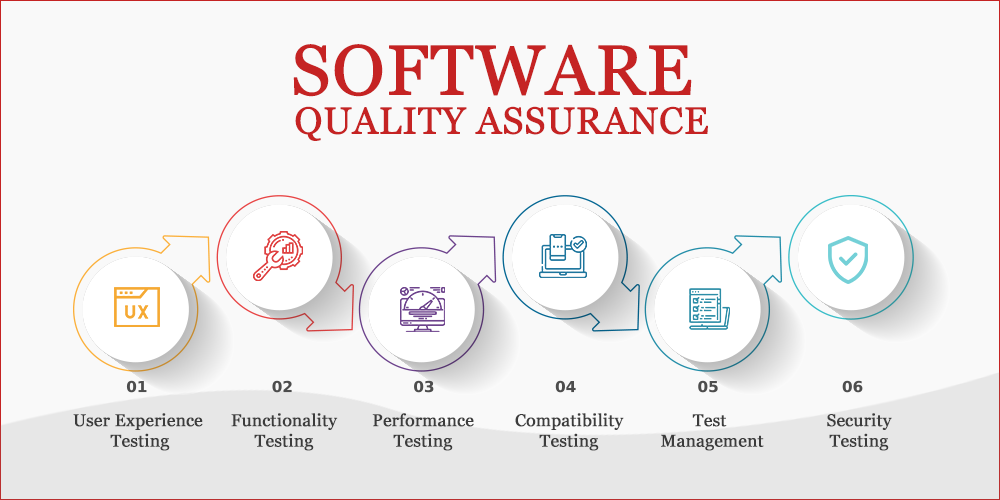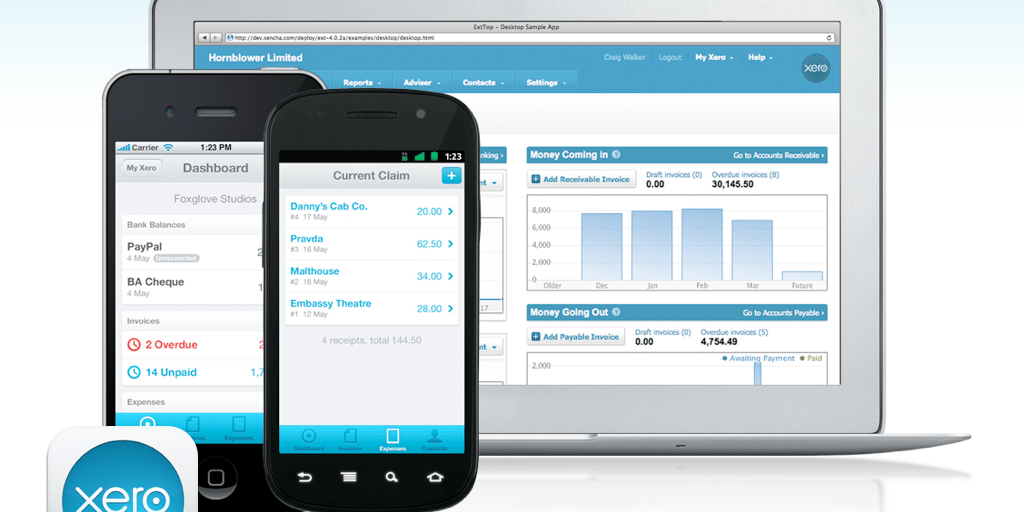You might think cloud hosting is just for tech giants, but the reality is that it’s becoming increasingly accessible and crucial for small businesses. Cloud platforms offer a level of flexibility and scalability that was once unimaginable, allowing businesses to scale their resources up or down as needed, optimizing costs and performance. In this guide, we will help small businesses and startups find the best cloud hosting provider in 2023. We’ll cover the key features, pricing models, and factors to consider when choosing a cloud hosting solution. Additionally, we will discuss the benefits of cloud hosting for small businesses and explore some of the top cloud server options available.
Toc
- 1. Understanding Cloud Hosting
- 2. Choosing the Best Cloud Hosting Provider: A Step-by-Step Guide
- 3. Top Cloud Hosting Providers for Small Businesses
- 4. Related articles 01:
- 5. Tips for Choosing the Right Cloud Hosting Provider
- 6. Analyzing Cloud Hosting Market Trends for Small Businesses
- 7. Related articles 02:
- 8. Frequently Asked Questions (FAQ)
- 9. Conclusion
Understanding Cloud Hosting

Cloud hosting is a modern approach to web hosting that leverages multiple servers to distribute resources, ensuring reliability and performance. Unlike traditional hosting, which relies on a single server, cloud hosting provides enhanced scalability and flexibility. Here’s a closer look at its advantages:
Definition and Mechanism
Cloud hosting operates by using a network of connected servers, often referred to as a “cloud.” This infrastructure allows for the distribution of data across multiple servers, ensuring that if one server experiences an issue, others can seamlessly take over. This redundancy enhances reliability and drastically reduces the risk of downtime. Moreover, the resources required to manage website traffic are not limited to a singular server, which means cloud hosting can easily accommodate spikes in traffic by scaling resources in real time. This scalability makes it particularly attractive for businesses experiencing growth or unpredictable web traffic patterns, thus providing a cost-effective and resilient hosting solution.
Benefits of Cloud Hosting for Small Businesses
The shift to cloud hosting has become a boon for small businesses due to several compelling advantages. One of the primary benefits is cost efficiency. With cloud hosting, businesses only pay for the resources they use, allowing them to align their IT expenses directly with their operational needs. This “pay-as-you-go” model eliminates the need for significant upfront investments in hardware and maintenance, freeing up capital for other business needs.
Another significant advantage is the enhanced security that cloud hosting offers. Reputable cloud providers invest heavily in robust security measures, including data encryption and regular security audits, to protect sensitive business information from cyber threats. This means small businesses can benefit from enterprise-level security without the associated costs.
Additionally, cloud hosting facilitates remote work and operational continuity. By storing data in the cloud, employees can access critical information and applications from anywhere with an internet connection. This flexibility not only supports remote work policies but also ensures business operations can continue seamlessly during unexpected disruptions, such as natural disasters or technical failures at physical office locations. Overall, cloud hosting empowers small businesses to operate more agilely, securely, and cost-effectively in a rapidly evolving digital landscape.
Choosing the Best Cloud Hosting Provider: A Step-by-Step Guide

When evaluating the best cloud hosting providers, there are several critical factors to consider to ensure you make an informed decision.
Performance and Reliability
Website speed and uptime are paramount for small businesses. The impact of website speed on business success is significant, as research by Google shows that a 1-second delay in page load time can result in a 7% decrease in conversions. This means that slow-loading websites can directly impact sales and revenue, particularly for e-commerce businesses. A study by Akamai found that 47% of consumers expect a web page to load in 2 seconds or less. Failing to meet this expectation can lead to frustrated customers and lost business.
When evaluating performance metrics, look for cloud hosting providers that guarantee at least 99.9% uptime. Key performance metrics to consider include server response times and load times. Providers that utilize Content Delivery Networks (CDNs) can enhance speed by distributing content closer to users, resulting in faster load times.
Security and Compliance
Data security is a top priority for any business. Ensure the cloud hosting provider offers robust security features, such as SSL/TLS encryption, firewalls, and DDoS protection, to safeguard your data. If your business handles sensitive information, such as in e-commerce, verify that the provider complies with industry standards like PCI DSS.
Scalability and Growth Potential
As your business evolves, so will your hosting needs. Choose a cloud hosting provider that allows you to easily adjust resources such as CPU, RAM, and storage. This flexibility is crucial for accommodating traffic fluctuations, especially for businesses with seasonal peaks in demand. Opt for providers that offer scalable solutions to support your business as it grows, ensuring you won’t outgrow your hosting solution.
Ease of Use and Support
For many small business owners, technical expertise may be limited. Look for cloud hosting providers that offer intuitive control panels and dashboards, making it easier to manage your hosting environment. Ensure that the provider offers responsive customer support to assist with any technical issues you may encounter.
Top Cloud Hosting Providers for Small Businesses

1. https://khogachre.com/archive/5651/
2. https://khogachre.com/archive/5648/
3. https://khogachre.com/archive/5649/
Now that you understand the key considerations, let’s explore some of the best cloud hosting providers for small businesses in 2023.
SiteGround Cloud Hosting
SiteGround has established itself as a leader among cloud hosting providers. Built on Google Cloud infrastructure, SiteGround delivers exceptional performance and reliability, ensuring your website remains accessible. The platform also offers optimizations specifically for WordPress, including advanced caching features that enhance site speed. With a user-friendly control panel and managed services, SiteGround is an excellent choice for small businesses seeking a hassle-free cloud hosting experience.
DreamHost Cloud Hosting
DreamHost is another trusted name among cloud-based hosting providers. The company’s cloud hosting plans are budget-friendly, making them ideal for startups and small businesses. DreamHost’s platform supports various operating systems, including Linux, BSD, and Windows, allowing businesses to choose what best fits their needs. Additionally, DreamHost offers unlimited data transfers, making it a suitable option for businesses with growing bandwidth requirements.
DigitalOcean Cloud Hosting
DigitalOcean stands out among cloud hosting providers due to its focus on developers and tech-savvy users. The platform’s intuitive interface is designed with simplicity in mind, making it easier for users to deploy applications quickly. DigitalOcean’s transparent pricing model ensures businesses can accurately budget for their cloud hosting needs. The provider’s presence in multiple global data centers also enhances performance and reliability for businesses operating internationally.
Cloudways Cloud Hosting
Cloudways offers a unique approach to cloud hosting that allows for greater flexibility. The platform provides a managed cloud hosting solution, enabling businesses to select from various leading cloud infrastructure providers, such as AWS and Google Cloud. Cloudways’ pay-as-you-go pricing model ensures you only pay for the resources you utilize, which is ideal for growing businesses. Additionally, the platform offers built-in caching and CDN options to enhance website performance, making it suitable for agencies and developers.
Tips for Choosing the Right Cloud Hosting Provider

Selecting the best cloud hosting provider requires careful consideration. Here are some practical tips:
Start Small and Scale Up
When venturing into cloud hosting, it’s advisable to begin with a basic plan that aligns with your current business needs. This strategy allows you to manage costs efficiently and provides the flexibility to scale up resources seamlessly as your business experiences growth. By starting small, you can also better understand your cloud hosting requirements and make informed decisions about future upgrades.
Utilize Free Trials or Credits
Many cloud hosting providers offer free trials or credits, allowing you to explore their platform without an immediate financial commitment. Leveraging these opportunities lets you evaluate the features, performance, and user interface of different services to ensure they meet your specific requirements. Testing multiple providers can help you make a well-informed choice for your long-term hosting needs.
Read Reviews and Testimonials
To make a sound decision, it’s crucial to investigate online reviews and customer testimonials. These resources provide valuable insights into the experiences and satisfaction levels of other small businesses and startups using the cloud hosting providers you are considering. Pay attention to both positive and negative feedback to gain a balanced understanding of each provider’s strengths and weaknesses.
Contact Customer Support
Before making a commitment, reach out to the customer support teams of potential providers. This interaction will help you assess their responsiveness and the quality of their assistance. Assessing their support services is vital, as reliable customer support can be a significant factor in resolving technical issues quickly and maintaining smooth operations. This step ensures you can expect a high level of support when you become a customer.
Analyzing Cloud Hosting Market Trends for Small Businesses

As cloud technology continues to advance, small businesses can expect to see several trends emerge in the cloud hosting market. These include:
Increased Integration with Artificial Intelligence (AI) and Machine Learning (ML)
AI and ML technologies are increasingly being integrated into cloud hosting solutions, providing small businesses with powerful tools to enhance operational efficiency and data insights. These technologies can automate routine tasks, predict workload demands, and optimize resource allocation, allowing businesses to focus on core activities while reducing overhead. As AI and ML algorithms become more sophisticated, cloud hosting platforms offer advanced analytics capabilities, enabling small businesses to make data-driven decisions and stay competitive in their respective industries. Adopting such innovations can significantly improve customer experiences and streamline business processes, empowering small businesses to achieve growth and scale efficiently.
Growth in Edge Computing
The evolution of edge computing is set to significantly impact the cloud hosting landscape for small businesses. By processing data closer to the source, edge computing reduces latency and improves the speed and efficiency of data handling. This is particularly beneficial for small businesses that rely on real-time data processing and need to deliver responsive services to customers. As IoT devices and applications continue to proliferate, edge computing will play a crucial role in managing the increased data flow, enabling small businesses to gain quicker insights and maintain a competitive edge. Additionally, edge computing offers enhanced security measures by distributing data processing, making it harder for cyberattacks to compromise sensitive information. Embracing edge computing allows small businesses to harness the full potential of modern cloud hosting solutions, ensuring prompt and reliable service delivery.
Emphasis on Sustainability and Green Hosting
With increasing awareness of environmental issues, cloud hosting providers are putting greater emphasis on sustainability and green practices. This trend is important for small businesses that prioritize corporate social responsibility and seek to minimize their carbon footprint. Providers are adopting eco-friendly technologies and utilizing renewable energy sources to power their data centers. Additionally, innovations such as energy-efficient hardware and automated systems to optimize energy consumption contribute to greener hosting solutions. Small businesses choosing eco-conscious cloud hosting providers not only contribute to environmental preservation but also appeal to customers who value sustainability. By aligning with these providers, small businesses can enhance their brand reputation while enjoying cutting-edge hosting services.
1. https://khogachre.com/archive/5650/
2. https://khogachre.com/archive/5649/
3. https://khogachre.com/archive/5653/
Greater Emphasis on Security Measures
As cyber threats continue to proliferate, cloud hosting providers are placing a stronger emphasis on robust security measures. For small businesses, this focus on security is crucial to protect sensitive data and maintain customer trust. Providers are investing in advanced technologies such as encryption, intrusion detection systems, and firewall protection to safeguard against unauthorized access and potential breaches. Additionally, compliance with industry standards and regulations, such as GDPR and HIPAA, is becoming a key feature offered by cloud hosting services. By prioritizing security, small businesses can mitigate risks and ensure that their data remains confidential and secure, fostering trust with their customers and stakeholders.
Expansion of Multi-Cloud Strategies
The adoption of multi-cloud strategies is becoming increasingly prevalent among small businesses looking to leverage the diverse benefits of different cloud environments. Multi-cloud strategies allow businesses to distribute workloads across multiple providers, enhancing flexibility, reducing dependency on a single vendor, and improving disaster recovery capabilities. This approach enables small businesses to select the most suitable cloud services for each specific need, whether it’s data storage, application hosting, or analytics. Furthermore, multi-cloud utilization can optimize costs, as businesses can shop for the best pricing and performance options across providers. Implementing a well-planned multi-cloud strategy empowers small businesses to remain agile and responsive in an ever-evolving digital landscape, ensuring they can scale and innovate without disruption.
Frequently Asked Questions (FAQ)

Q: How much does cloud hosting cost?
A: Cloud hosting costs can vary widely based on several factors including the provider, the specific plan you select, and the amount of resources you use. Basic plans might start as low as $5 per month, but more advanced plans with additional features and greater resources can easily exceed $100 per month.
Q: Is cloud hosting secure?
A: Yes, cloud hosting is generally secure, especially if you choose a reputable provider that offers robust security features such as encryption, firewalls, and regular security audits. Always ensure that your provider has a strong track record in security.
Q: Can I switch cloud hosting providers?
A: Yes, switching cloud hosting providers is usually possible. However, it’s crucial to select a provider that facilitates an easy migration process. Be sure to check if they offer migration assistance or tools to help transfer your data smoothly.
Q: What are the best cloud hosting providers for WordPress?
A: Some of the most highly recommended cloud hosting providers for WordPress include SiteGround, DreamHost, and Cloudways. These providers are known for their excellent performance, reliability, and customer support tailored specifically for WordPress users.
Q: How can I learn more about cloud hosting?
A: There are numerous resources available online that can help you learn more about cloud hosting. These include articles, tutorials, and forums where you can engage with other users and experts. Additionally, many cloud hosting providers offer comprehensive documentation and support to help you understand their services better.
Conclusion
Overall, navigating the cloud hosting landscape requires a thoughtful approach and a clear understanding of your business’s unique needs. By assessing providers on factors like cost-effectiveness, scalability, security, and customer support, you can make a decision that not only meets your current requirements but also supports future growth. As technologies continue to evolve, staying informed about the latest advancements in cloud hosting will empower you to optimize your online presence and maintain a competitive edge. Remember, the right cloud hosting solution can significantly impact your business’s performance and success, making it an investment worth careful consideration.











